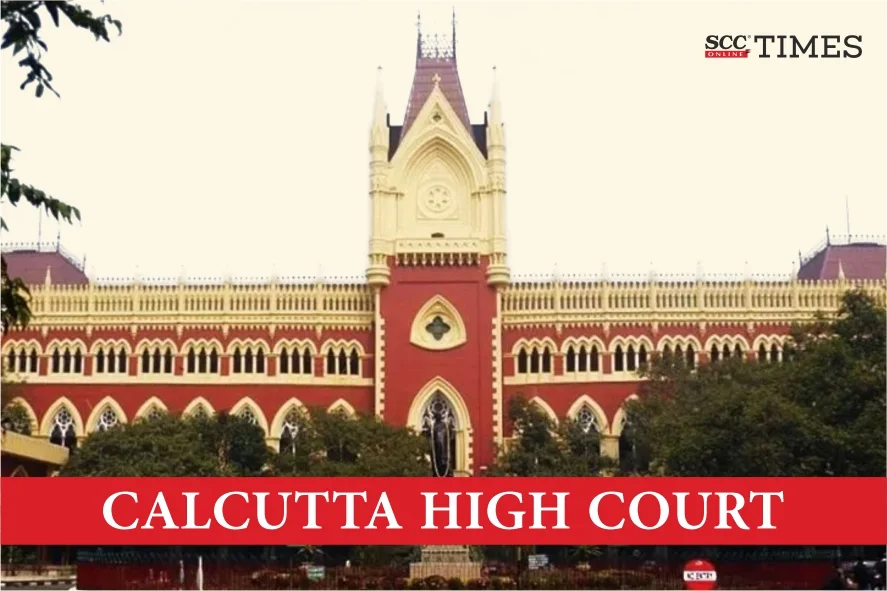Calcutta High Court: In a revisional application challenging an order of civil court rejecting the petitioner’s application under Order 18 Rule 17 of the Civil Procedure Code, 1908 (CPC), seeking to tender an affidavit-in-chief prepared in connection with another suit, a single-judge bench comprising of Shampa Sarkar,* J., acknowledged the unity and similarity of the suits due to the analogous hearing and held that the affidavit-in-chief from another suit was relevant for the adjudication of present title suit. The Court granted permission to the petitioner to tender the affidavit-in-chief, ensuring a fair and comprehensive adjudication of the analogously heard suits.
In the instant matter, the petitioner in a civil suit, sought to amend pleadings under Order 18 Rule 17 of the CPC. The petitioner sought to tender an affidavit-in-chief prepared in connection with another suit, which was being tried analogously with the present suit. However, the application was rejected by the civil court because the defendant’s witnesses had already been examined and discharged, and the suit was at the stage of arguments. The civil court reasoned that the affidavit-in-chief prepared for another suit was not relevant to the present suit, as both were being tried analogously. Aggrieved by the impugned order dated 21-04-2022, the petitioner preferred the present revisional application challenging the same. The main issue in the present matter is whether the affidavit-in-chief filed in connection with another suit should be permitted to be tendered as evidence in the present suit, considering the suits were being tried analogously.
The petitioner asserted that in analogously heard suits, the civil court should allow amendments as they are material for adjudication. While highlighting the relevance of the affidavit-in-chief for proper adjudication and the petitioner contended that its formal tendering was missed due to an oversight. On the other hand, the opposite parties argued against the application, stating that Order 18 Rule 17 CPC should not be used routinely. The opposite parties emphasised that allowing fresh evidence at the argument stage would amount to abuse of process.
The Court noted that the non-tendering of affidavit-in-chief was only a bona fide mistake, which was realised after completion of evidence and the statements in the affidavit-in-chief are relevant for adjudication of the suits which were being tried analogously. The Court noted that the present case is not related to a situation that a third case was being made out in the affidavit-in-chief which was sought to be introduced in present title suit after closure of evidence. The Court considered the nature of the application, focusing on the necessity of recalling the petitioner to tender the affidavit-in-chief and held that the evidence tendered in both suits should be considered together, especially since they were being tried analogously. The Court emphasised that the ends of justice demanded the tendering of the affidavit-in-chief, which was already part of the record.
“Both the suits are between the same parties and in respect of the same property and some of the reliefs are similar. Such affidavit-in-chief must be tendered in evidence for the ends of justice.”
The Court referred to legal precedents, including the K.K. Velusamy v. N. Palanisamy, (2011) 11 SCC 275, where the Supreme Court held that “the court may in exercise of its inherent power under Section 151 of the Code, permit the production of such evidence if it is relevant and necessary in the interest of justice, subject to such terms as the court may deem fit to impose.” Furthermore, the Court relied on the principle of analogous hearing, where suits with common parties and issues are treated as one for the purpose of adjudication. As both suits were to be disposed of by a single judgment, the evidence from one suit was relevant to the other.
The Court ruled in favor of the petitioner and allowed the petitioner to tender the affidavit-in-chief as evidence in the proceedings for the ends of justice and complete the recall process for proper adjudication. The Court directed the suits to be heard together after the completion of the evidence on recall and granted the respondent the right to cross-examine the petitioner. The Court set aside the impugned order and allowed the revisional application, with no order as to costs.
[Tapan Kumar Mondal v. Mahathirtham, 2024 SCC OnLine Cal 2310, order dated 06-03-2024]
*Judgment by Justice Shampa Sarkar
Advocates who appeared in this case :
Mr. Sanjoy Mukherjee, Mr. Arghadip Das, Counsel for the Petitioner
Ms. Subrata Bhattacharjee, Counsel for the Opposite Party







